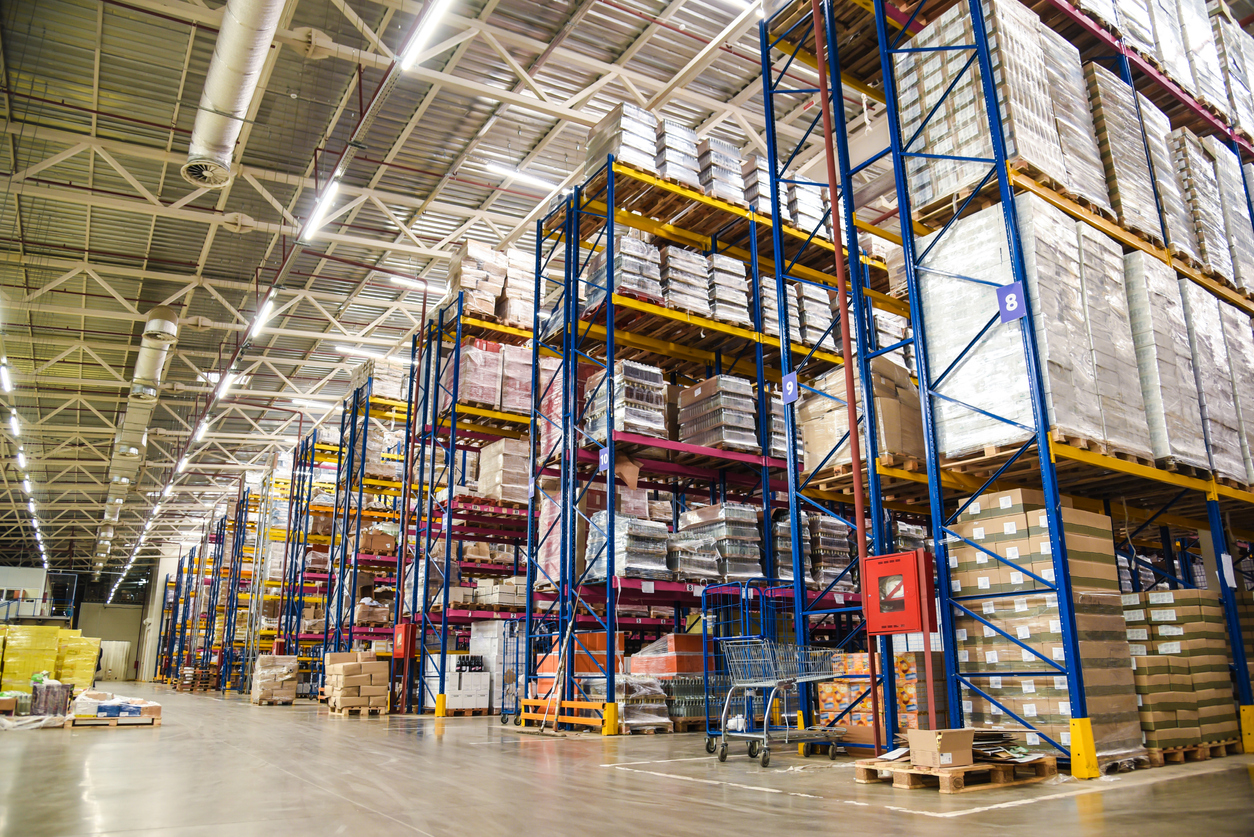The Role of Agents in the Nigerian Food, Beverage, and Tobacco Industry: A Closer Look with Wigmore Trading
The Role of Agents in the Nigerian Food, Beverage, and Tobacco Industry: A Closer Look with Wigmore Trading
Are you curious about the hidden heroes behind Nigeria’s thriving food, beverage, and tobacco industry? Look no further! Join us as we delve into the fascinating world of agents and their pivotal role in this dynamic sector. In this eye-opening blog post, we team up with Wigmore Trading to shed light on how these unsung champions navigate the complex web of distribution, marketing, and sales. Get ready to uncover their secrets to success and gain a deeper appreciation for the driving force behind Nigeria’s taste buds!
Introduction to the Nigerian Food, Beverage, and Tobacco Industry
Introduction to the Nigerian Food, Beverage, and Tobacco Industry
The Nigerian food, beverage, and tobacco industry is a vital sector of the country’s economy. It plays a significant role in the nation’s Gross Domestic Product (GDP) and employs millions of people. The industry is responsible for producing various food products, beverages, and tobacco products that are consumed locally and exported to other countries.
Nigeria has a rich agricultural sector with favorable climatic conditions for growing different types of crops such as cassava, maize, rice, cocoa beans, palm oil, and many more. As such, the country has become one of the leading producers of these commodities globally. This abundance of raw materials has led to the growth and development of the food processing industry in Nigeria.
The beverage industry in Nigeria is also thriving with a wide range of locally produced drinks such as fruit juices, carbonated soft drinks, bottled water, energy drinks among others. These products cater to both local consumption and export markets.
In addition to its booming agriculture sector, Nigeria is also known for its thriving tobacco production. The country is one of Africa’s largest producers of tobacco with several multinational companies operating within its borders. The demand for cigarettes in Nigeria continues to increase year after year despite efforts by health advocates to reduce smoking rates.
Wigmore Trading Company Limited is one of the leading players in this industry providing reliable supply chain solutions for manufacturers and distributors dealing with food products like grains and cereals; poultry feed ingredients; edible oils; bakery ingredients; confectionery ingredients; dried fruits & nuts; spices & condiments; seafood etc., beverages like teas & coffees; fruit concentrates & purees; milk powder etc.,and lastly tobacco related products including whole leaf tobaccos used for cigarettes production or raw material preparation purposes.
Wigmore Trading has been able to navigate through challenges faced by manufacturers due to its expertise in providing efficient supply chain solutions from sourcing raw materials to delivering finished products. The company is dedicated to supporting local manufacturers and distributors, ensuring that they have access to quality raw materials at competitive prices.
The Nigerian food, beverage, and tobacco industry is a vital sector of the economy and continues to experience significant growth due to favorable conditions for agriculture and increasing demand for locally produced goods. Wigmore Trading plays a crucial role in this industry by providing reliable supply chain solutions for manufacturers and distributors, contributing to the growth and development of this important sector in Nigeria.
What are Agents and Their Role in this Industry?
Agents play a crucial role in the Nigerian food, beverage, and tobacco industry. They are often the link between producers and consumers, bridging the gap between supply and demand. In simple terms, an agent is a middleman who acts as a representative for either the producer or the buyer.
In this industry, agents can be classified into two categories: manufacturers’ agents and sales agents. Manufacturers’ agents work directly with producers and act as their representatives in negotiating sales contracts with buyers. On the other hand, sales agents work on behalf of buyers to source products from different manufacturers.
So what exactly is the role of these agents in this industry? Let’s take a closer look:
1. Facilitating Trade
One of the primary functions of agents in this industry is to facilitate trade between producers and consumers. They use their knowledge and expertise to connect buyers with suitable suppliers based on their specific needs. This helps both parties save time and effort in finding each other, making the entire trading process more efficient.
2. Managing Contracts
Agents also play a crucial role in managing contracts between producers and buyers. They help negotiate favorable terms for both parties while ensuring that all legal requirements are met. This includes setting prices, payment terms, delivery schedules, and quality standards.
3. Market Intelligence
With years of experience working closely with various players in the industry, agents have valuable market intelligence that can benefit both producers and buyers. They keep track of market trends, consumer preferences, competitor activities, pricing strategies, etc., which they share with their clients to make informed business decisions.
4. Handling Logistics
The Nigerian food, beverage, and tobacco industry involves complex logistics due to its vast geographical spread across different regions within Nigeria. Agents play an essential role in coordinating transportation arrangements for product deliveries from manufacturers to buyers’ locations efficiently.
5. Providing Support Services
Apart from facilitating trade deals between producers and consumers; some agents also provide support services such as marketing, advertising, and product promotion. They assist producers in promoting their products to potential buyers and even provide market analysis to help them improve their offerings.
Agents are an integral part of the Nigerian food, beverage, and tobacco industry. They facilitate trade, manage contracts, provide market intelligence, handle logistics and offer support services that contribute to the growth and success of this industry. Therefore, it is essential for stakeholders in this industry to understand the role of agents and work closely with them for mutual benefit.
The Importance of Agents in the Distribution Process
In the distribution process of the Nigerian food, beverage, and tobacco industry, agents play a crucial role in ensuring that products reach their intended markets efficiently. Agents act as intermediaries between manufacturers and retailers or wholesalers, bridging the gap between production and consumption. Their presence is vital in this sector as it involves a complex network of supply chain management.
One of the main reasons why agents are essential in the distribution process is their ability to provide market access for manufacturers. In Nigeria, there is a vast diversity of cultures, languages and customs which can make it challenging for companies to establish direct relationships with potential customers. Agents have local knowledge and understanding of these cultural differences, making them valuable assets for manufacturers looking to enter different regions within Nigeria. They can help bridge any language barriers and navigate through any cultural sensitivities that may arise during negotiations.
Agents also bring expertise and experience in logistics management. The transportation system in Nigeria faces various challenges such as poor road conditions, traffic congestion, inadequate infrastructure among others. These issues make it difficult for manufacturers to distribute their products effectively on their own. However, agents are well equipped with extensive knowledge about local routes and transportation methods which enables them to overcome these challenges and ensure timely delivery of goods.
Moreover, agents provide market intelligence by gathering information on consumer preferences, buying patterns, competitive strategies and other relevant data that helps manufacturers understand market trends better. This information is crucial for businesses to develop effective marketing strategies tailored towards specific target audiences.
Furthermore, agents offer cost-saving benefits for both manufacturers and retailers or wholesalers. Manufacturers save on costs associated with setting up retail outlets or employing sales representatives while retailers save on transportation expenses by buying directly from nearby agents instead of traveling long distances to purchase goods directly from manufacturers.
Another significant advantage of having agents in the distribution process is their ability to manage credit risks efficiently. In an economy where cash transactions are still predominant over electronic payments systems; credit risks remain a major concern for businesses. Agents act as credit intermediaries, providing financial stability by ensuring that retailers or wholesalers pay for goods in a timely and reliable manner.
The role of agents in the Nigerian food, beverage and tobacco industry cannot be overlooked. They bring numerous benefits to both manufacturers and retailers/wholesalers, making them essential players in the distribution process. Their expertise, market knowledge, cost-saving benefits, and risk management abilities make them integral components of the supply chain management system in Nigeria.
How Wigmore Trading is Revolutionizing the Agent System in Nigeria
Wigmore Trading, a leading distributor in the Nigerian food, beverage, and tobacco industry, is revolutionizing the traditional agent system in Nigeria. In this section, we will explore how Wigmore Trading is bringing about positive changes to the agent system and creating new opportunities for both agents and manufacturers.
Firstly, Wigmore Trading has implemented a unique approach to selecting and training agents. Unlike the conventional method of hiring anyone who expresses interest in becoming an agent, Wigmore Trading carefully vets each candidate based on their qualifications and experience. This ensures that only qualified individuals with relevant knowledge and skills are selected as agents. Furthermore, all selected agents undergo rigorous training programs conducted by industry experts to equip them with necessary product knowledge and sales techniques.
Moreover, Wigmore Trading has introduced technological advancements to support its agents’ work efficiency and effectiveness. Through the use of mobile applications specifically designed for their agents, they have streamlined processes such as order taking, inventory management, and delivery tracking. This allows for real-time information sharing between the manufacturer, distributor (Wigmore Trading), and agent. As a result, orders can be fulfilled faster and more accurately while keeping all parties updated on product availability.
In addition to technological advancements, Wigmore Trading also provides continuous support to its agents through regular meetings organized by experienced supervisors who provide guidance on sales strategies and market trends. These meetings serve as platforms for agents to network with other professionals in the industry which helps foster growth opportunities.
Furthermore,Wigmore Trading offers attractive incentives such as bonuses for high-performing agents which motivates them to excel in their roles.This results in improved performance levels of both individual agents as well as overall sales volume.
One of the most significant ways that Wigmore trading is revolutionizing the agent system is by adopting a more collaborative approach with its partners – both manufacturers and retailers. Rather than solely focusing on securing maximum profits from each transaction, Wigmore Trading prioritizes building long-term relationships with its partners. This approach has resulted in higher levels of trust, transparency, and open communication between all parties involved.
Wigmore trading is bringing about a positive shift in the traditional agent system in Nigeria by raising the standards for agents’ qualifications and training, implementing technological advancements, providing continuous support and incentives to its agents, and adopting a more collaborative approach with its partners. With these changes, Wigmore Trading is setting new benchmarks for efficiency and effectiveness in the distribution process while creating mutually beneficial relationships within the industry.
Success Stories: Case Studies of Agents Working with Wigmore Trading
Wigmore Trading has been a trusted partner in the Nigerian food, beverage, and tobacco industry for over 20 years. As a leading distributor and wholesaler of these products, Wigmore has worked closely with numerous agents to bring success to both parties.
In this section, we will take a closer look at some of the success stories and case studies of agents who have partnered with Wigmore Trading.
Case Study #1: Mr. Ahmed
Mr. Ahmed was a small-scale businessman who owned a local grocery store in Lagos. He had been struggling to keep up with the demands of his customers for premium quality products at competitive prices. That’s when he came across Wigmore Trading and decided to become an agent.
With Wigmore’s extensive product range and reliable delivery services, Mr. Ahmed was able to expand his business and cater to the growing needs of his customers. He also received training from Wigmore on how to effectively market their products, which helped him attract new customers and increase sales.
Today, Mr. Ahmed’s store is one of the top-performing outlets in Lagos, thanks to his partnership with Wigmore Trading.
Case Study #2: Mrs. Adesina
Mrs. Adesina was an experienced salesperson who had been working for various companies in the FMCG sector for many years without much success. She decided to join forces with Wigmore Trading as an agent due to their reputation as a reliable supplier.
With her exceptional sales skills and knowledge about the market demand for food products in Nigeria, Mrs.Adesina quickly became one of the top-performing agents for Wigmore Trading. Her dedication and hard work not only brought success for herself but also contributed significantly to increasing Wigmore’s market share in Nigeria.
Case Study #3: Mr.Tayo
Mr.Tayo was a young entrepreneur looking for opportunities in the fast-paced world of business when he stumbled upon an opportunity with Wigmore Trading. He saw the potential in Wigmore’s products and decided to become an agent.
With the support and guidance from Wigmore, Mr.Tayo successfully established a network of clients, including supermarkets, hotels, and restaurants, that regularly ordered products from him. This partnership not only provided financial stability for Mr.Tayo but also helped him gain valuable experience in the industry.
These are just a few examples of the success stories and case studies of agents working with Wigmore Trading. These partnerships have not only brought success to individual agents but have also contributed to the growth and development of the Nigerian food, beverage, and tobacco industry as a whole.
Wigmore Trading continues to welcome new agents who are willing to join hands in their mission to provide top-quality products at affordable prices across Nigeria. Together with their agents, they aim to revolutionize the FMCG sector in Nigeria and continue their legacy as a trusted partner for businesses in this industry.
Challenges Faced by Agents in this Industry
The Nigerian food, beverage, and tobacco industry is a thriving and highly competitive market. As such, the role of agents in this industry cannot be overstated. Agents play a crucial role in bridging the gap between producers and consumers, ensuring that products reach their intended markets efficiently. However, as with any other industry, agents face numerous challenges that can hinder their ability to carry out their duties effectively.
One of the main challenges faced by agents in this industry is fierce competition. With many players vying for a share of the market, agents often have to compete for clients and contracts. This competition can lead to price wars and undercutting, making it challenging for agents to make a profit. In addition, some manufacturers may choose to work directly with retailers or distributors instead of going through an agent, further reducing the demand for agent services.
Another significant challenge faced by agents in this industry is navigating complex supply chains. The food, beverage, and tobacco industries involve multiple stages of production and distribution before products reach consumers. Agents must keep track of these complex supply chains to ensure timely delivery of goods and avoid delays or disruptions that could impact their reputation with clients.
Agents also face logistical challenges when dealing with perishable goods such as fresh produce or dairy products. These items require strict temperature control and timely delivery to maintain quality standards. Any delays or mishandling during transportation could result in spoilage or damage to the product, which can be costly for both the agent and manufacturer.
In addition to these external challenges, agents also face internal obstacles within their organizations. Managing cash flow can be difficult due to long payment cycles from clients while having upfront expenses such as transport costs or warehousing fees. This can lead to financial strain on small- scale agents who do not have large reserves or access to credit facilities.
Furthermore, cultural differences across different regions within Nigeria also pose a challenge for agents operating at a national level. Each region has its unique cultural practices, preferences, and tastes, making it vital for agents to have a deep understanding of these nuances to effectively market and distribute products.
While agents play an essential role in the Nigerian food, beverage, and tobacco industry, they face numerous challenges that can affect their operations. To be successful in this industry, agents must continuously adapt to changing market conditions and employ effective strategies to overcome these challenges.
How to Become an Agent with Wigmore Trading
Becoming an agent with Wigmore Trading is an exciting opportunity for individuals who are looking to enter the Nigerian food, beverage, and tobacco industry. As a leading importer and distributor in the country, Wigmore Trading offers a wide range of products from renowned international brands. By becoming an agent with us, you will not only have access to high-quality products but also gain valuable experience and knowledge in the industry.
Here are the steps to becoming an agent with Wigmore Trading:
1. Research and understand our company: Before applying to become an agent, it is important to do some research on our company and understand what we do. This will give you a better understanding of our values, goals, and expectations for agents.
2. Determine your target market: As an agent, one of your primary responsibilities will be to promote and sell Wigmore Trading’s products in your designated area. Therefore, it is essential to determine your target market beforehand. Are you interested in selling to retailers or restaurants? Will you focus on urban or rural areas? Knowing this information will help us assign you suitable territories.
3. Submit an application: The next step is to submit an application through our website or by contacting our sales team directly. We require basic personal information as well as details about your business background and experience in sales.
4. Attend training sessions: Once your application has been accepted, you will be invited for training sessions at our head office in Lagos or at one of our regional offices across the country. These training sessions are designed to equip you with product knowledge, marketing techniques, and other essential skills needed for success as an agent with Wigmore Trading.
5. Sign a contract: After completing the training sessions successfully, we will offer you a contract which outlines the terms and conditions of being an agent with us.
6. Start promoting and selling: With all the necessary preparations done, it’s time for you to start promoting and selling our products to your target market. Our team will provide you with marketing materials and support to help kickstart your sales.
7. Receive commissions: As an agent, you will earn a commission on every sale made in your designated area. The more you sell, the higher your commission will be.
Becoming an agent with Wigmore Trading is a great opportunity for individuals who are passionate about sales and the Nigerian food, beverage, and tobacco industry. If you are interested in joining our team of agents, please visit our website or contact us for more information. We look forward to working with you!
Conclusion: The Future of Agents in the Nigerian Food, Beverage, and Tobacco
Conclusion: The Future of Agents in the Nigerian Food, Beverage, and Tobacco Industry
Based on our findings and discussions with Wigmore Trading, it is evident that agents play a crucial role in the Nigerian food, beverage, and tobacco industry. As the country continues to experience economic growth and development, the demand for these products is expected to increase exponentially. This presents a promising future for agents who are willing to adapt and evolve with the changing market trends.
One key trend that is likely to shape the future of agents in this industry is technology. With advancements in digital platforms and e-commerce, more consumers are shifting towards online purchases. This opens up new opportunities for agents to expand their reach beyond traditional brick-and-mortar stores. By leveraging technology, agents can tap into a wider customer base and increase their sales potential.
In addition to technology, sustainability will also be a critical factor for agents in the food, beverage, and tobacco industry. As consumer awareness grows about environmental issues such as plastic waste and carbon footprint, there will be an increased demand for sustainable products. Agents who can offer eco-friendly options or work with environmentally responsible suppliers will have a competitive edge in the market.
Furthermore, there is also growing pressure from regulatory bodies on businesses operating in this sector to comply with health standards and regulations. Agents must stay updated on these regulations to ensure that they are sourcing products from reputable manufacturers who meet these standards. Failure to do so could result in legal consequences that could harm both their reputation and business operations.
Another factor that cannot be ignored when discussing the future of agents in this industry is competition. With an ever-growing number of players entering the market every day, agents must differentiate themselves by providing exceptional service quality and building strong relationships with clients.
As we move towards a more globalized world economy, there will be opportunities for agents to expand their reach beyond Nigeria’s borders. By catering to international markets through partnerships or exports of local products, agents can diversify their revenue streams and further strengthen the industry’s growth.
Agents will continue to play a vital role in the Nigerian food, beverage, and tobacco industry. However, to thrive in the future market, they must adapt to changing trends and consumer demands while maintaining high-quality standards. By doing so, they not only secure their position in the industry but also contribute to its overall growth and development.








Comments are closed.